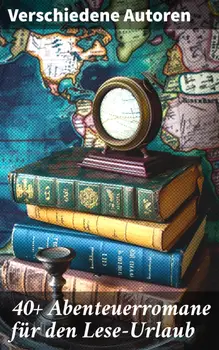Diese bemerkenswerte Anthologie, '40+ Abenteuerromane für den Lese-Urlaub', lädt Leser ein, sich auf eine literarische Reise durch die Welt des Abenteuers zu begeben. Mit einer beeindruckenden Vielfalt an Stilen und Themen, die von exotischen Erkundungen über rätselhafte Detektivarbeiten bis hin zu heroischen Entdeckungsreisen reichen, bietet die Sammlung eine erhebliche Bandbreite an literarischen Erfahrungen. Werke wie die packenden Erzählungen von Alexandre Dumas und die spannungsreichen Geschichten von Edgar Allan Poe gewähren Einblicke in unterschiedliche narrative Traditionen und setzen Maßstäbe für deren Genre. Die Auswahl der Autoren umfasst einige der bedeutendsten Schriftsteller der Abenteuerliteratur. Diese Anthologie vereint Beiträge, die verschiedene Epochen und Kulturen umfassen, und stellt dabei den Reichtum und die Vielfalt des Genres heraus. Autoren wie Jules Verne, Mark Twain und Rudyard Kipling erschaffen durch ihre Erzählungen einen lebendigen Dialog zwischen den Zeiträumen und schaffen ein reichhaltiges Panoptikum menschlicher Natur und Neugier. Diese Sammlung bietet somit nicht nur klassische Erzählungen, sondern auch einen interkulturellen Diskurs, der die Leser für die Breite der Abenteuerliteratur sensibilisiert. Für Leser, die ihren Horizont erweitern möchten, ist diese Anthologie ein unverzichtbares Kompendium literarischer Entdeckungen. Sie bietet eine einzigartige Gelegenheit, innerhalb eines einzigen Bandes eine Fülle an Perspektiven und Stilen zu erkunden. Ob zur persönlichen Bildung oder zur reinen Freude am Lesen, die '40+ Abenteuerromane für den Lese-Urlaub' sind eine Einladung, sich der Vielfalt des Genres hinzugeben und die faszinierenden Dialoge zwischen den Meisterwerken zu erleben."}
40+ Abenteuerromane für den Lese-Urlaub : 20.000 Meilen unter dem Meer, Der Graf von Monte Christo, Die Schatzinsel, Der letzte Mohikaner…
Authors:
- Jules Verne
- Friedrich Gerstäcker
- Charles Dickens
- Karl May
- Mark Twain
- Amalie Schoppe
- Robert Louis Stevenson
- James Fenimore Cooper
- Edgar Allan Poe
- Arthur Conan Doyle
- Joseph Conrad
- Herman Melville
- Walter Scott
- Jonathan Swift
- Pierre Loti
- Daniel Defoe
- Alexandre Dumas
- Rudyard Kipling
- Gustave Aimard
- Emilio Salgari
- Franz Treller
- G. K. Chesterton
- Robert Kraft
- Sophie Wörishöffer
- Frederick Kapitän Marryat
Format:
Duration:
- 17163 pages
Language:
German
Categories:

Le tour du monde en quatre-vingts jours
Jules Verne
audiobookbook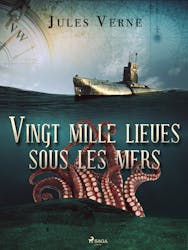
Vingt mille lieues sous les mers
Jules Verne
book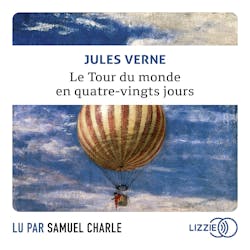
Le Tour du monde en quatre-vingts jours
Jules Verne
audiobookbook
Voyage au centre de la Terre
Jules Verne
audiobookbook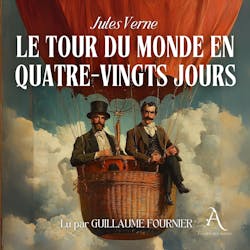
Le Tour du monde en quatre-vingts jours - Livre Audio
Jules Verne, Livres audio en français
audiobook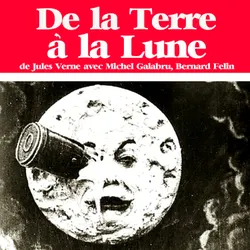
De la Terre à la Lune
Jules Verne
audiobookbook
Cinq semaines en ballon
Jules Verne
audiobookbook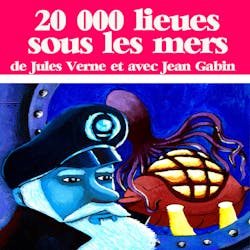
20 000 lieues sous les mers
Jules Verne
audiobook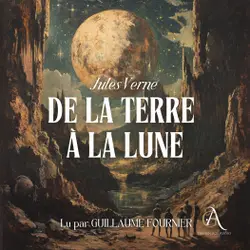
De la Terre à la Lune - Livre Audio
Jules Verne, Livres audio en français
audiobook
Les Enfants du Capitaine Grant
Jules Verne
book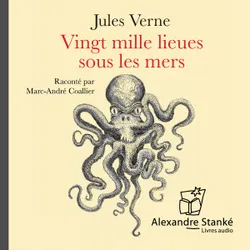
Vingt mille lieues sous les mers
Jules Verne
audiobookbook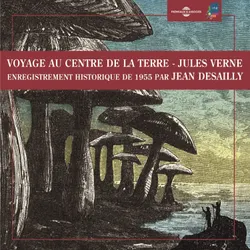
Voyage au centre de la terre : Enregistrement historique de 1955
Jules Verne
audiobook
- 1967 books
Jules Verne
Jules Verne (1828–1905) was a prolific French author whose writing about various innovations and technological advancements laid much of the foundation of modern science fiction. Verne’s love of travel and adventure, including his time spent sailing the seas, inspired several of his short stories and novels.
Read more - 2414 books
Charles Dickens
Charles Dickens was born in 1812 and grew up in poverty. This experience influenced ‘Oliver Twist’, the second of his fourteen major novels, which first appeared in 1837. When he died in 1870, he was buried in Poets’ Corner in Westminster Abbey as an indication of his huge popularity as a novelist, which endures to this day.
Read more - 1702 books
Mark Twain
Mark Twain, born Samuel Langhorne Clemens in 1835, left school at age 12. His career encompassed such varied occupations as printer, Mississippi riverboat pilot, journalist, travel writer, and publisher, which furnished him with a wide knowledge of humanity and the perfect grasp of local customs and speech manifested in his writing. It wasn't until The Adventures of Huckleberry Finn (1885), that he was recognized by the literary establishment as one of the greatest writers America would ever produce. Toward the end of his life, plagued by personal tragedy and financial failure, Twain grew more and more cynical and pessimistic. Though his fame continued to widen--Yale and Oxford awarded him honorary degrees--he spent his last years in gloom and desperation, but he lives on in American letters as "the Lincoln of our literature."
Read more - 948 books
Arthur Conan Doyle
Sir Arthur Conan Doyle (1859–1930) was a Scottish writer and physician, most famous for his stories about the detective Sherlock Holmes and long-suffering sidekick Dr Watson. Conan Doyle was a prolific writer whose other works include fantasy and science fiction stories, plays, romances, poetry, non-fiction and historical novels.
Read more - 947 books
Joseph Conrad
Polish-born Joseph Conrad is regarded as a highly influential author, and his works are seen as a precursor to modernist literature. His often tragic insight into the human condition in novels such as Heart of Darkness and The Secret Agent is unrivalled by his contemporaries.
Read more - 528 books
Herman Melville
Herman Melville was born in 1819 in New York City. After his father's death he left school for a series of clerical jobs before going to sea as a young man of nineteen. At twenty-one he shipped aboard the whaler Acushnet and began a series of adventures in the South Seas that would last for three years and form the basis for his first two novels, Typee and Omoo. Although these two novels sold well and gained for Melville a measure of fame, nineteenth-century readers were puzzled by the experiments with form that he began with his third novel, Mardi, and continued brilliantly in his masterpiece, Moby-Dick. During his later years spent working as a customs inspector on the New York docks, Melville published only poems, compiled in a collection entitled Battle-Pieces, and died in 1891 with Billy Budd, Sailor, now considered a classic, still unpublished.
Read more - 735 books
Walter Scott
Sir Walter Scott was born in Scotland in 1771 and achieved international fame with his work. In 1813 he was offered the position of Poet Laureate, but turned it down. Scott mainly wrote poetry before trying his hand at novels. His first novel, Waverley, was published anonymously, as were many novels that he wrote later, despite the fact that his identity became widely known.
Read more - 360 books
Jonathan Swift
Jonathan Swift was born of English descent in Dublin, Ireland in 1667. He went to school at Trinity College in Ireland, before moving to England at the age of 22. After a short stint in the Anglican Church, he began his career as a writer, satirizing religious, political, and educational institutions. He wrote in defense of the Irish people, especially in his A Modest Proposal, which made him a champion of his people. His most famous work is Gulliver’s Travels which was published anonymously in 1726.
Read more - 681 books
Daniel Defoe
Daniel Defoe was born at the beginning of a period of history known as the English Restoration, so-named because it was when King Charles II restored the monarchy to England following the English Civil War and the brief dictatorship of Oliver Cromwell. Defoe’s contemporaries included Isaac Newton and Samuel Pepys.
Read more - 2000 books
Alexandre Dumas
Alexander Dumas (1802–1870), author of more than ninety plays and many novels, was well known in Parisian society and was a contemporary of Victor Hugo. After the success of The Count of Monte Cristo, Dumas dumped his entire fortune into his own Chateau de Monte Cristo-and was then forced to flee to Belgium to escape his creditors. He died penniless but optimistic.
Read more - 1068 books
Rudyard Kipling
Rudyard Kipling was born in Bombay, India, in 1865. One of the most revered writers in recent history, many of his works are deemed classic literature. To this day, he maintains an avid following and reputation as one of the greatest storytellers of the past two centuries. In 1907, he received the Nobel Prize for Literature. He died in 1936, but his stories live on—even eighty years after his passing.
Read more
